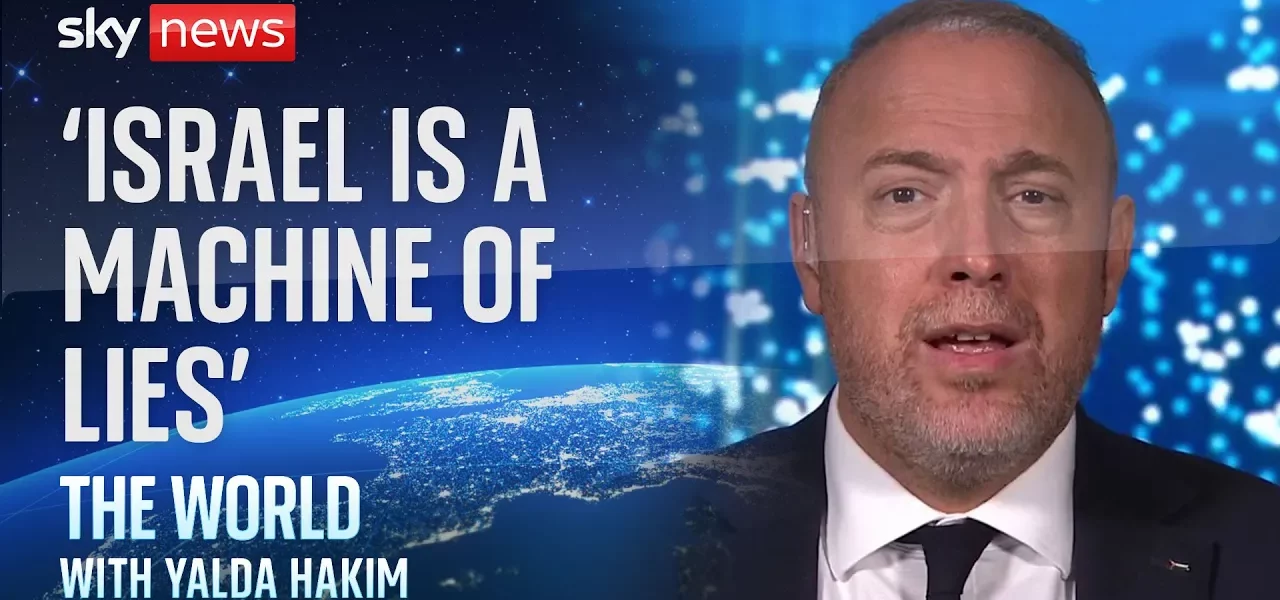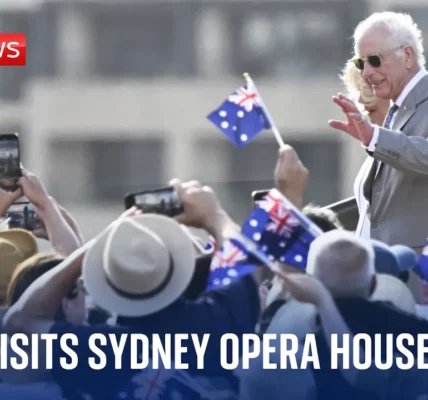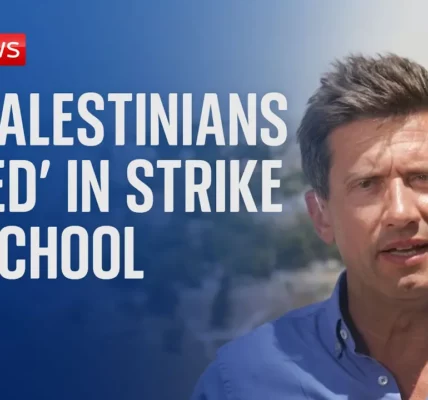In-Depth Discussion with Palestinian Ambassador Husam Zumot

Join us as we explore the insights of Husam Zumot, the Palestinian ambassador to the UK, regarding the ongoing Israeli-Palestinian conflict, accountability for atrocities, and the role of Arab nations in advocating for a Palestinian state.
Introduction
The ongoing Israeli-Palestinian conflict has been a focal point of international discourse for decades. In this detailed conversation, Palestinian ambassador to the UK, Husam Zumot, shares his thoughts on recent events, especially in the context of accountability regarding the Israeli military’s actions and the broader implications for Palestinian statehood. This article delves into these critical topics, highlighting the ambassador’s perspectives on international responses and regional dynamics.
The Call for Accountability
Ambassador Zumot opens the discussion by expressing his frustration over the lack of accountability from the Israeli military regarding their actions, specifically referencing the case of H. Rajab and her family. He emphasizes that this issue transcends individual cases, reflecting a systemic pattern of violations that has persisted for over 76 years.
Historical Context of Accountability
Over the decades, the call for accountability has often been met with denials and a lack of genuine investigation from Israeli authorities. Zumot highlights the difficulty in naming a single Israeli soldier who has faced consequences for their actions in the occupied territories. This situation raises profound questions about the efficacy of internal investigations by the Israeli military.
The Role of International Media
Zumot commends the efforts of international media in investigating and documenting the realities on the ground, particularly in Gaza. He points out that the Israeli government has historically restricted media access to these areas, aiming to control the narrative and prevent the dissemination of information that could contradict their public relations efforts.
The International Community’s Response
One of the most contentious aspects of this discussion is the reaction of global powers, particularly the United States and the United Kingdom, following incidents of violence against Palestinians. Zumot critiques these nations for calling on Israel to conduct its own investigations.
The Need for Independent Investigations
According to Zumot, it is unrealistic to expect a government to hold itself accountable for war crimes. Instead, he advocates for independent international investigations, emphasizing that the international community must prioritize objective fact-finding rather than relying on self-investigations by the Israeli government.
Arab Nations’ Involvement
In reflecting on the geopolitical landscape, Zumot discusses the response of Arab nations, particularly Saudi Arabia, the UAE, and Jordan, to the ongoing conflict. He notes that while there has been a significant public outcry and grassroots support for Palestinians, the governmental response varies:
- Saudi Arabia has emphasized the necessity of establishing a Palestinian state as a prerequisite for normalization with Israel.
- Jordan and Egypt have been vocal about the unsustainability of the current situation and have aligned their positions with Palestinian aspirations.
- The UAE’s approach has been more complex, balancing diplomatic relations with a commitment to Palestinian statehood.
The Path Forward for Palestine
Ambassador Zumot outlines a vision for the future, emphasizing the importance of regional cooperation and international support for the establishment of a Palestinian state. He refers to the Arab Peace Initiative as a critical framework for moving forward.
The Arab Peace Initiative
This initiative proposes a comprehensive peace plan that addresses the core issues of the Israeli-Palestinian conflict, including:
- The end of the Israeli occupation.
- The establishment of a sovereign Palestinian state.
- Normalization of relations between Israel and Arab countries, contingent upon the establishment of peace.
International Support and Recognition
Zumot emphasizes the need for a united international front to support Palestinian statehood. He calls for:
- Increased recognition of Palestine as a sovereign state by global powers.
- Greater involvement of international organizations, including the UN, in mediating peace talks.
- Multilateral approaches to ensure compliance with international law regarding occupation and settlements.
Conclusion
In conclusion, the discussion with Ambassador Husam Zumot sheds light on the critical issues surrounding the Israeli-Palestinian conflict, including the urgent need for accountability, the role of international and regional players, and the path towards achieving a viable Palestinian state. As these issues continue to unfold, it is imperative for the global community to engage actively and advocate for justice and peace in the region. For more insights on the Israeli-Palestinian conflict and related topics, visit our related articles section.
“`




